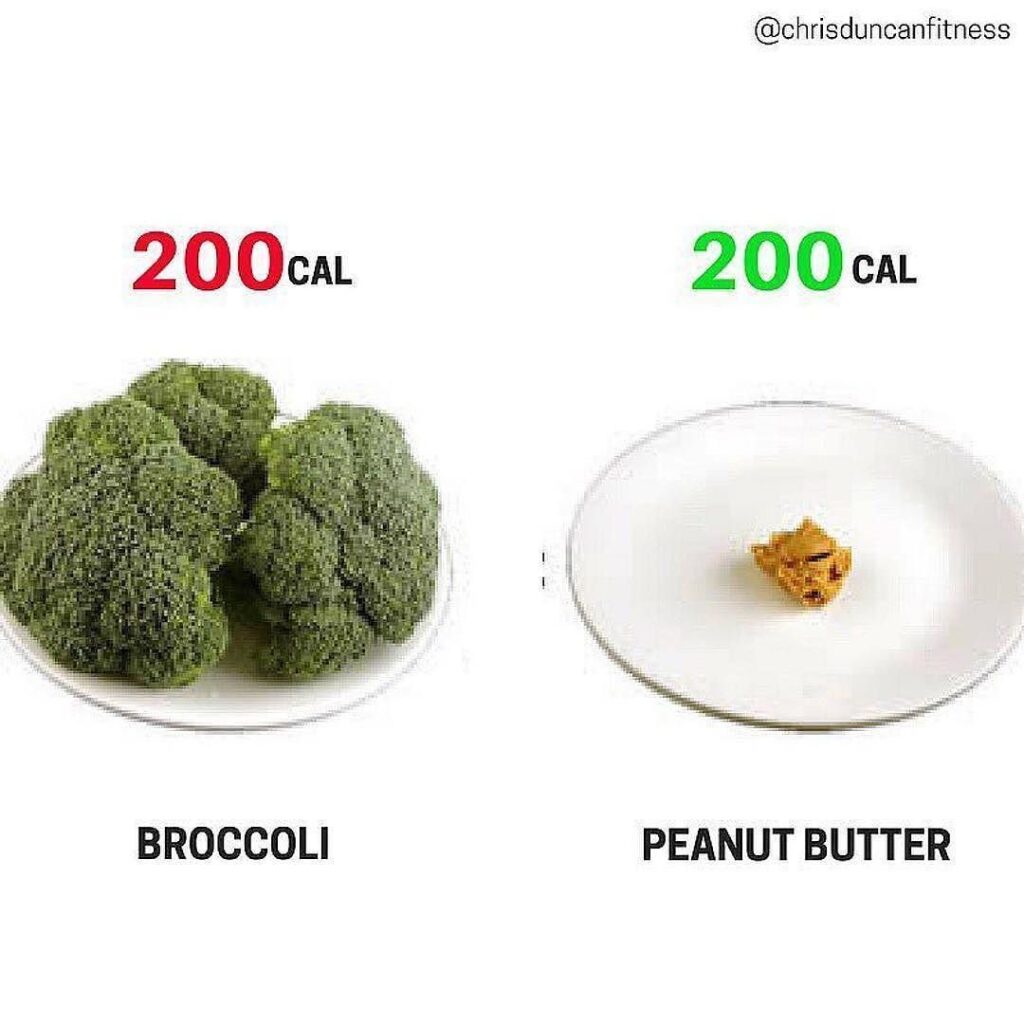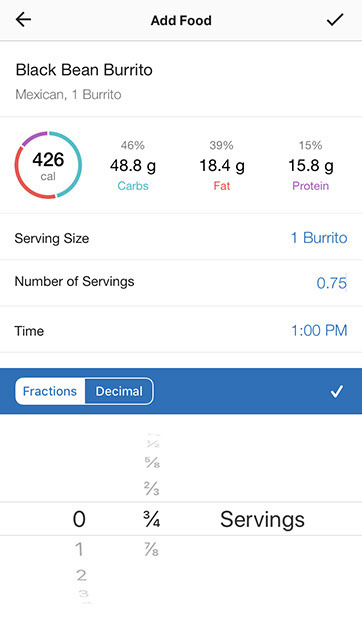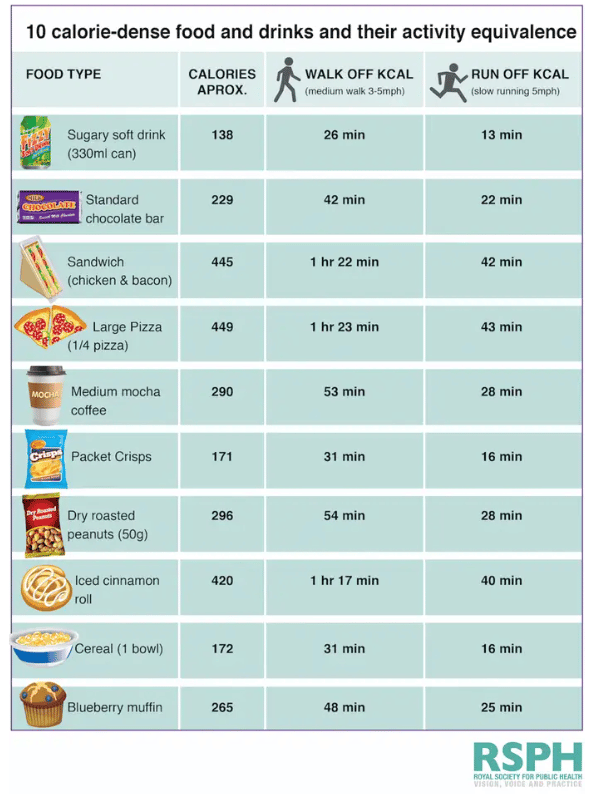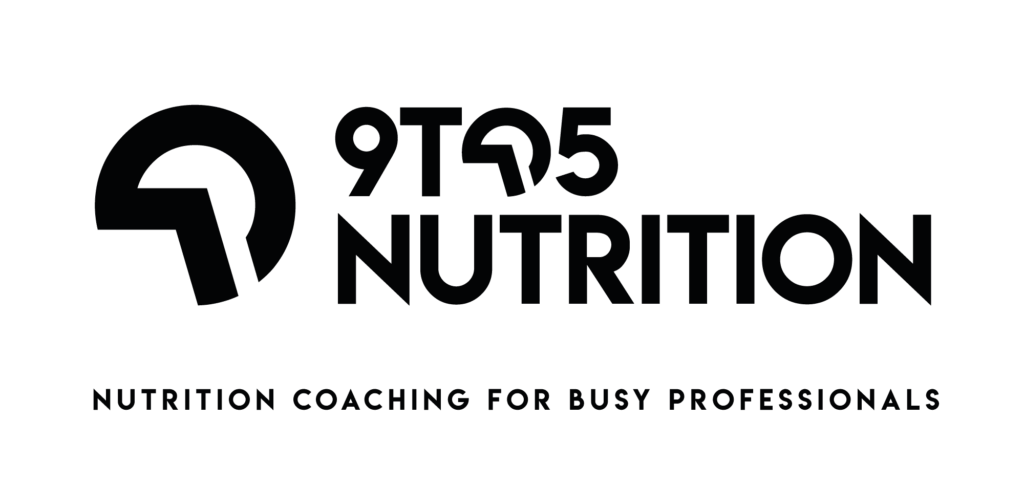- How Much Weight Can You Realistically Lose in 3 Months? - January 14, 2024
- How To Lose 1kg a Week (Guaranteed) - August 20, 2023
- How To Count Calories (or Estimate) and Stay on Track When Eating Out at Restaurants - July 25, 2023
This happens to a lot of people, and there are a few good reasons for it, and even more reasons why it might not be happening at all, but let’s quickly summarise why this could be happening, or at least why you think it could be happening;
- You’re eating less food (in terms of the weight/volume of food) but the same amount of calories (or more). This is really easy to do because foods that don’t take up much room in the gut (nuts, oil, butter) can still contain a lot of calories
- You are actually eating fewer calories than you were before, but you’re also doing less exercise or just generally moving less (your NEAT has decreased). This is offsetting the decrease in calories, meaning that you’re staying the same weight or going up in weight
- You’re not actually eating fewer calories at all, you just think you are. The best way to ensure you’re eating the right amount of calories is to track your calories accurately using an app like My Fitness Pal
THE MECHANICS OF WEIGHT LOSS
To understand why you might be eating less, you first need to understand how weight loss works, the good news is, it’s pretty simple.
If you eat fewer calories than you use on a daily basis, consistently and over a significant period of time, you’ll lose weight. This is called eating in a ‘calorie deficit’.
This is because the body isn’t getting enough calories to sustain itself, so it’ll dig into fat (and sometimes glycogen and/or muscle) reserves in order to get the calories it needs to keep you alive and functioning normally.
At the fat stores as used, your body weight will decrease.
It is a little more complicated and nuanced than this but that’s essentially how weight loss works
Many people come to me saying they physically can’t lose weight because of a specific medical condition. While there are cases like this out there, the fact is, 99% just eat too much. It’s as simple as that.
Even if you do have a medical condition like thyroid disfunction, a calorie deficit will still result in weight loss.
DOES EATING LESS MAKE YOU GAIN WEIGHT?
It really depends on what your definition of ‘less’ is.
If you mean ‘less’ as in less calories, then no, eating less will NOT make you gain weight (assuming exercise levels and everything else stays the same). In fact, if everything else stays the same and you eat less calories than you had been doing before, you’ll definitely lose weight (how much weight and how quickly depends on HOW MANY fewer calories you’re eating!).
If you mean less as in ‘less food’ or eating less frequently (e.g. going down from 5 to 2 meals per day), then no, this doesn’t automatically mean you’ll lose weight because you could easily be eating the same amount (or more) calories, depending on the foods you’re eating.
‘LESS’ COULD BE MORE
‘Eating less’ will only help you lose weight if you’re eating less calories. It’s absolutely possible to eat ‘less food’, i.e. smaller volumes or portions but eat MORE calories, especially if you’re eating very calorie-dense foods like oils, nuts, cheese and fatty cuts of meat like Ribeye Steak or Salmon. Track. Your. Calories.
CAN EATING TOO LITTLE BREAK YOUR METABOLISM?
No.
There is a myth that’s been circulating for some time that eating ‘too little’ can put your body into starvation mode. The myth goes that if the body knows it’s getting less food than it needs, it’ll put you into starvation mode and you’ll no longer be able to lose fat as a ‘defense mechanism’.
This simply isn’t true.
Starvation mode is a myth; your metabolism is largely fixed, determined by your weight, age, gender, height and muscle mass so there are no outside factors that can change it drastically. Simply eating less won’t have an impact on your metabolism.
Now, as you lose weight your metabolism will reduce down slowly, but this is a very gradual process, not an on/off switch, and even if it does reduce, this can always be reversed.
But in short, your metabolism can’t stop you from losing weight, and metabolic damage isn’t really a thing…
With that said, let’s look at some of the reasons you might be eating less, but still gaining weight…
- YOU’RE EATING LESS FOOD, BUT NOT LESS CALORIES
If you say you’re eating ‘less’, you really need to be sure about what ‘less’ means. In order to lose weight, you need to eat fewer CALORIES than you normally do, while keeping your activity levels the same (or increasing activity).
It is possible however to eat ‘less’ food in terms of the weight and volume of the food, while eating more calories.
This is because different foods have different calorie density scores.
A simple example comparison is Broccoli vs Peanut butter.
100g of broccoli contains roughly 35 calories, 100g of peanut butter contains roughly 580 calories. So if you swapped 100g of broccoli for 50g of peanut butter, you be eating a lot less (in terms of weight and volume) but a LOT more calories (35 vs 290 calories). This is an example of a situtaion where eating ‘less’ wouldn’t help you lose weight (in fact, you’d gain weight).
So, although you’re not eating more food (in terms of the weight) if you chose the Peanut Butter, you ARE eating a LOT more calories!
A lot…
So, it is very possible to eat less food weight, but more calories, and gain weight as a result!

- YOU ARE LOSING FAT – BUT RETAINING WATER!
Scale weight isn’t the full story.
What you really want is fat loss, not weight loss. Yes, weight loss over time is a good indicator that you’re losing fat, but it isn’t the be-all and end-all.
If you find the scales some days giving you a strange high reading, it could just mean you’re retaining water.
This could be for all kinds of reasons, including;
- Lack of sleep
- A high salt intake
- Dehydration (from lack of water or excessive alcohol)
3. YOU MIGHT NOT BE TRACKING PROPERLY
Even if you know you’re eating less calories (rather than less weight of food), you still might not be sure exactly how many calories you’re eating. This is why lots of people will say they’re in a calorie deficit but not losing weight.
This is because calorie tracking can be inaccurate due to human error.
You need to ensure that you accurately track everything.
One common mistake with calorie tracking is that some people simply forget to track snacks – no matter how small, EVERYTHING counts, so make sure you are tracking everything. Everything means
- Your daily teas and coffees
- The sauce you put on your fries
- The oil you fry your dinner in
- The nibbles from that birthday buffet at the office
- That bite of your kids leftovers from dinner
All these seemingly trivial things throughout the day can easily add up to 100s of extra calories you might not even be acknowledging.
This 1992 study carried out on two groups of men and women found that the group who struggled with dieting historically underestimated their calorie intake and overestimated their activity levels by 57% and 41% respectively.
Once you know you’re tracking EVERYTHING you eat, you also need to make sure that what you do track is tracked accurately, which means weighing food with a scale before you eat it.
100g of rice is very different in calories to 250g of rice, so weigh accurately. Also, ensure you’re weighing and tracking cooked and raw weights accurately.

4. YOU’RE DOING LESS ACTIVITY
As mentioned previously, weight gain is dictated by calories in vs calories out. If you eat more calories than you burn, you’ll lose weight.
Eating fewer calories is all very well, but you need to make sure your activity levels stay the same.
Let’s say you normally walk for 30 minutes every day and you decide you want to lose some weight, so you start eating 300 fewer calories per day.
To lose a pound of fat you need to burn 3,500 calories, so you’d lose 1lb in about 11 days IF you kept everything else the same.
However, if you stopped walking, you might burn around 300 fewer calories a day, so your weight would just stay the same.
This is why consistency, data and tracking are so important when losing weight, if you ‘pull a lever’ (e.g, eating fewer calories) you need to make sure everything else (e.g. your activity levels) stays exactly the same, or you won’t get the result you expected.
CHANGE ONE THING AT A TIME
If you start eating fewer calories, DON’T change anything else. Lower your calories and stick with it for at least 2 weeks. If you start doing less exercise as well, this could undermine the deficit you would have created and you’ll end up going nowhere.
⬇ WANT IN TO MY FREE 14-DAY FAT LOSS COURSE? PUT YOUR NAME AND EMAIL ADDRESS IN BELOW; ⬇
WHAT IF YOU’RE EXERCISING BUT STILL NOT LOSING WEIGHT?
Another common complaint that I see from people is that they’re eating well, exercising and still not losing weight.
Despite everything you’ve been conditioned to believe (probably from those Six Second Abs infomercials), exercise is NOT the panacea for weight loss.
Yes, exercise burns calories, but the number of calories the average person can realistically burn through exercise is negligible compared the number of calories contained in popular foods.
Let’s say that you know you need to be eating 1,600 calories a day on average to lose weight. And let’s say that you’ve already eaten 1,600 calories, but you decide you want a Blueberry Muffin (containing 265 calories).
That means, in order to carry losing weight consistently, you’ll need to burn 265 calories. This would take 48 minutes of walking (of course this will vary based on your body weight, how fast you walk, etc etc).
In this scenario, you may have already exercised, but you’d need to do more to burn those extra 265 calories you’ve taken in, so just exercising alone isn’t enough to make you lose weight, you NEED to account for your calorie intake and calorie output and make sure you’re doing the right amount of exercise to keep you in a calorie deficit.

The other thing to highlight is that intense exercise can stimulate appetite.
So, you might have hit your calorie target of 1,600, and decide to go out for an hour-long run. You’ll burn around an additional 300 calories, great.
But you might stimulate your appetite to such a degree that you’re driven to eat back 400 calories, in this scenario, you’ll actually gain weight because you’ve put yourself in a surplus.
So should you avoid exercise if you’re trying to lose weight?
Absolutely not.
But you should exercise in a way that’s not going to overly stimulate your appetite; my favourite form of exercise for me and my clients is walking.
You’ll need to walk for roughly double the amount of time you’d run for to burn the same amount of calories, but the big advantage is that it won’t stimulate your hunger to the point where you’re driven to eat more calories than you burned in the first place.
SO WHAT SHOULD YOU DO?
So, what should you do to make sure that you are actually eating fewer calories?
STICK TO LOW-CALORIE DENSITY, HIGH-VOLUME FOODS
Low calorie dense foods are foods that contain few calories per gram. The advantage of eating low-calorie dense foods are is that you’re eating a large volume (i.e. weight) of food, but not eating many calories.
This means you’ll be full, but you won’t be eating many calories. Even people that are consistently and accurately tracking calories may overeat driven by hunger, but sticking to low-calorie density foods makes this much less likely to happen as you’ll be full the majority of the time.
There are plenty of low-calorie-dense foods out there but you’ll be best off with fruits and vegetables. Some lesser-known low-calorie dense foods include lean meats like chicken, turkey and white fish, as well as low-fat dairy like 0% fat yoghurts, skimmed milk and low-fat cheese.
TIGHTEN UP YOUR TRACKING
Be honest with yourself.
Take time when you’re tracking and sanity-check everything. If you’ve tracked your burger and fries at 200 calories, you’re doing it wrong.
Track as you go along rather than trying to remember everything at the end of the day – because you simply won’t,
Yes, it can be time-consuming, but ask yourself how much time you spend on your phone scrolling through Instagram (I BET it’s hours per day).
MAKE SURE EVERYTHING IS CONSISTENT
As I mentioned, change ONE thing at a time.
If you’re eating different calorie amounts every day and training 6 times per week one week, then skipping the gym totally the next, you’ll have no idea where you are or what you’re doing.
Have a consistent lifestyle, and make one small tweak to see what difference it makes.
WORK ON YOUR SLEEP
Sleep will dictate your success in life, and it’s especially important for weight loss.
Why?
If you get poor sleep you’re more like to turn to food (i.e extra calories) for energy. This obviously isn’t going to help you.
Poor sleep may also mean you lack the energy to exercise properly, meaning you’ll burn fewer calories which will hinder any weight loss that could have happened.
This 2021 study showed a positive correlation between weight loss success and longer sleep duration.
SCRAP THOSE CHEAT MEALS
Contrary to popular belief, a ‘cheat meal’ won’t necessarily help you lose weight. You don’t need to refeed, or ‘stoke your metabolism’ to lose weight and while you might love the idea of a cheat meal because it rationalizes eating high-calorie, highly palatable food but the reality is, a cheat meal could be stopping you from getting into a calorie deficit, which is required for weight loss. Of course, if you are already tracking calories consistently and accurately then you can eat whetever you like, as long as you’re in a calorie deficit.
SPEAK TO AN EXPERT
Just as you’d hire an accountant to manage your finances, a weight loss coach can help manage your weight.
If you’re already tracking a coach can audit your numbers and see where you’re going wrong, and if you’re not already tracking, a coach can help get you started, and keep you accountable.
SUMMARY
If you eat fewer calories than you use, you’ll lose weight, that’s a fact.
So if you think you’re eating less but not losing weight, the truth is probably that you’re not.
Track accurately, weigh yourself consistently and get a coach to help you.
REFERENCES
Discrepancy between self-reported and actual caloric intake and exercise in obese subjects: https://pubmed.ncbi.nlm.nih.gov/1454084/
The association between sleep health and weight change during a 12-month behavioral weight loss intervention: https://www.ncbi.nlm.nih.gov/pmc/articles/PMC7914147/

Leave a Reply